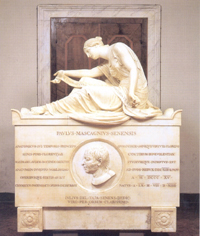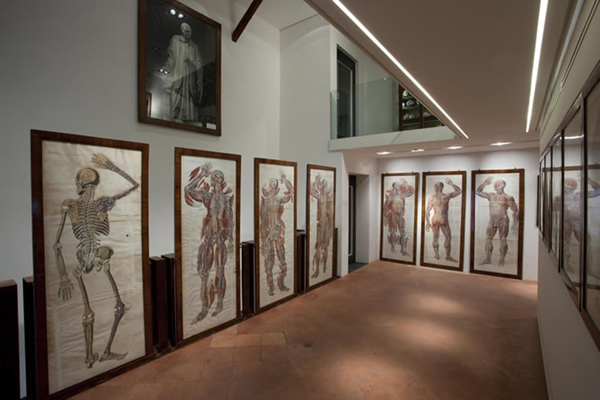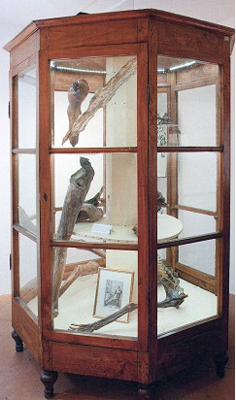
The Anatomical Museum “Leonetto Comparini”
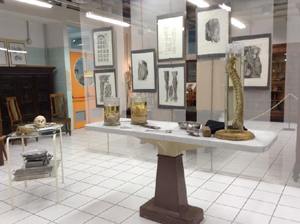
The Anatomical Museum of the University of Siena was founded at the beginning of 19th century to collect the works and the anatomical preparations of Paolo Mascagni.
The Tenth Congress of the Italian Scientists, planned in Siena in 1862, becomes the occasion for a new relocation of the Anatomical Museum inside the Spedale Santa Maria della Scala.
In 1870 the pathological laboratory records 488 crystal vases with caps datable "from various times", containing pathological preparations; the physiological anatomical laboratory displays glass closets boxes containing the numerous dry preparations and wax models of the collections; the classroom or "Mascagni school" is equipped by the Anatomy Universa colored cards of Paolo Mascagni.
In 1883 Guglielmo Romiti and Pilade Lachi re-arranged some of the collections, publishing with a joined signature, the reasoned Catalog of the Anatomical Museum of the Royal University of Siena.
In those years the institute of Anatomy distinguished itself both in the research and exploitation of its own museum, that holds around a thousand skulls and brains; admirable preparations of anatomical parts with their respective nerves systems and the relationships between the different nerves taking part[.] and a microscopical and embryological collection."
In 1895 the museum is relocated at Santa Maria della Scala within the new Anatomical Institutes Center at Laterino, where it remained up till 2001 when it was moved to the new Scientific Pole of St. Miniato.
Today, the Museum is named after Professor Leonetto Comparini, Director of the institute of Human Anatomy from 1966 to 1977.
Among the most interesting collections of the Museum , we find an osteological collection with skeletons dating to the second half of the XIX century, a skull collection of the same period, that assumes an exceptional scientific interest for its origin and quantities, nineteenth-century anatomical wax models , formalin and dry preparations as well as scientific tools dating from various epochs, "those more important and essential for the dissection."
The collections of the museum are still nowadays used by the university Professors as important didactic tools.
Academy of the Fisiocritici. Paolo Mascagni Room
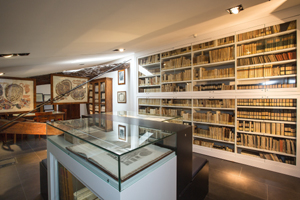 From the will of the University and other well known Siena Institutions, the Academy of the Fisiocritici preserves in the Mascagni Room its natural History museum, Anatomical department the " Siena patrimony of Mascagni", consisting of scientific preparations of that time in which the great Anatomist lived in Siena, his personal and family documents and files as well as the library books of this great anatomist.
From the will of the University and other well known Siena Institutions, the Academy of the Fisiocritici preserves in the Mascagni Room its natural History museum, Anatomical department the " Siena patrimony of Mascagni", consisting of scientific preparations of that time in which the great Anatomist lived in Siena, his personal and family documents and files as well as the library books of this great anatomist.